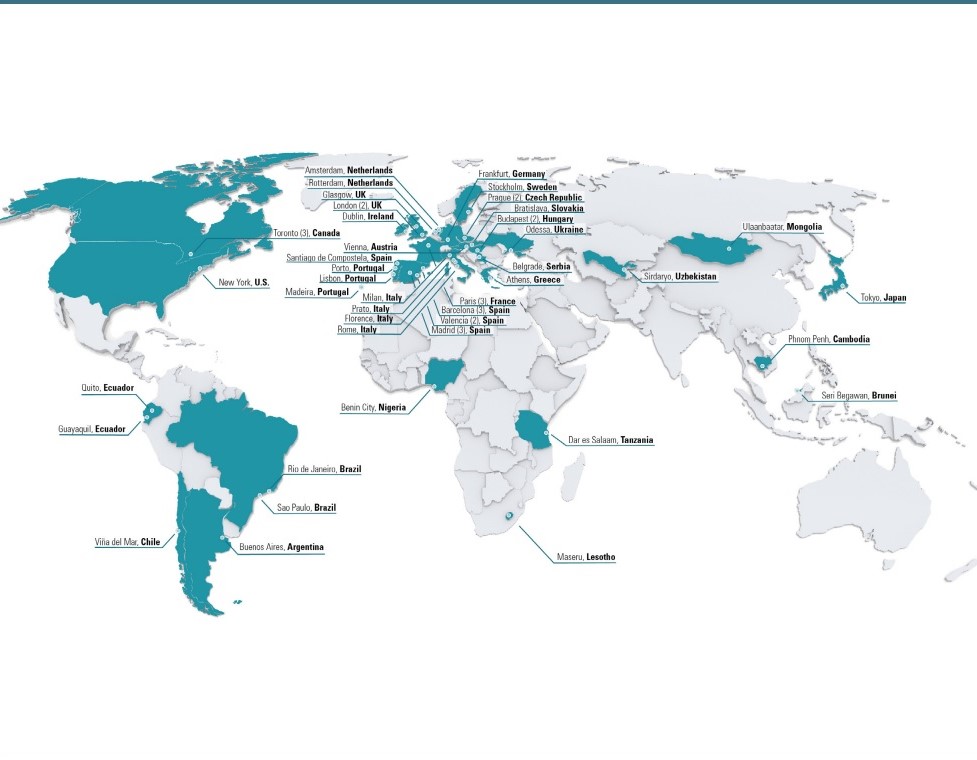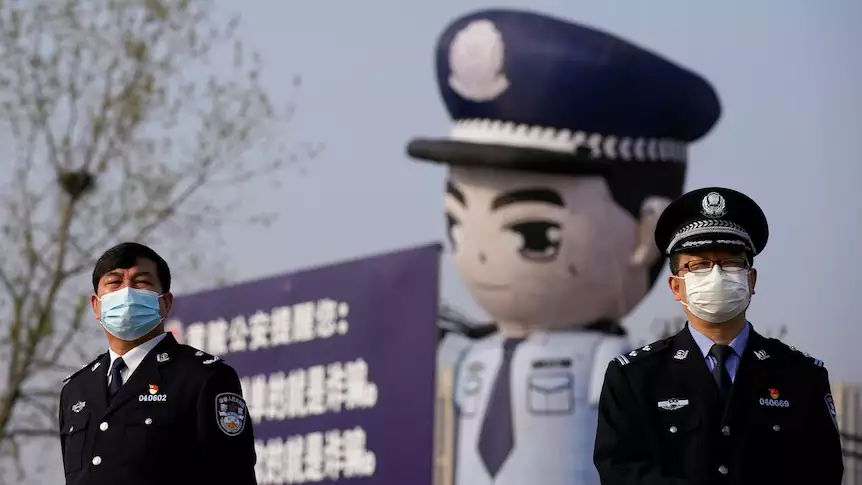China is notoriously famous for its unlawful and unethical attempts at spying and espionage all over the globe. To attain global supremacy, it has adopted several means to meddle in the internal affairs and national security of potential rival countries. Amongst them, overseas police stations are the newest tactic.
What are Chinese Overseas Police Stations (COPS)?
“The Party seeks power entirely for its own sake. We are not interested in the good of others; we are interested solely in power, pure power.”
George Orwell, 1984
The Chinese Overseas Police Stations (COPS) work under China’s Ministry of Public Security (MPS). Under the pretext of providing diplomatic assistance and aid to Chinese expats, these organsation have been found to assist CCP in espionage and information gathering activities against the host nations.
These police stations were established to support a Chinese global covert operation, Operation Fox Hunt. Operation fox hunt, though claimed to be started for capturing Chinese criminals living abroad, its real purpose is to track and bring Chinese personnel, who show dissent and criticise the CCP, back to China where they unjustly trialled and sentenced.
The Canadian Security Intelligence Service (CSIS) publicly acknowledged that China is using threats and intimidation against members of Canada’s Chinese community through its OPS. CSIS said that “these tactics can also be used as cover for silencing dissent, pressuring political opponents and instilling a general fear of state power no matter where a person is located.
Where are they located?
The activities of China’s overseas police stations first came in limelight in the year 2022, when the Spanish human rights group Safeguard Defenders published an investigative report on them in September and then through a follow up report in December.
As per this report, the first Overseas Police Station was established by China’s Nantong and Wenzhou provinces in 2016. The Nantong police department (of the Chinese province of Nantong) established the first “overseas service stations” in 2016 as a trial project. Subsequently, the bureau opened offices in six nations and imprisoned more than 80 people in Zambia, Myanmar, and Cambodia. The Public Security Department of Wenzhou also has a branch in Sydney, Australia. In 2018, the Lishui Bureau opened two branches (one in Amsterdam and one in Rotterdam) in the Netherlands. The most offices would be opened by the police departments of Fuzhou and Qingtian counties, with the latter starting their programme in 2019. By December 2022, China had established approximately 102 police stations in 53 countries.

Operation Fox Hunt – CCP targets Chinese Expats
These police stations were established to support a Chinese global covert operation called Operation Fox Hunt.
Operation Fox Hunt, though claimed to be started for capturing Chinese criminals living abroad, its real purpose is to track and bring Chinese personnel, who show dissent and criticise the CCP, back to China where they unjustly trialled and sentenced.
The Canadian Security Intelligence Service (CSIS) publicly acknowledged that China is using threats and intimidation against members of Canada’s Chinese community through these overseas police stations. CSIS further says that these institutions are a “cover for silencing dissent, pressuring political opponents and instilling a general fear of state power no matter where a person is located.”
According to the Safeguard Defender’s reports, these tactics are often applied to the extreme.
An estimated 210,000 people were made to return to China by both legal and illegal means by these police stations. Apart from these, the FBI suspects that these shady offices were also used for supporting Chinese espionage. According to a report by the Centre for Strategic and International Studies (CSIS), it was found that the case of Chinese espionage increased significantly after 20 times in the time period of 2003-2023. In the US especially there have been various instances where targets are given the option of returning to China or being forced to commit suicide. Sometimes targets of the operation were coerced into compliance through arrests of family members and friends back home in China who were used as leverage to exert psychological pressure against the targets.
Some Victim Stories of Chinese Overseas Police –
Story of Yang Wei Dong and Kevin Caro in Australia
Yang Wei Dong, an artist and activist took asylum in Australia due to constant harassment and threats in China. However, after a short period, he was again started getting stalked in Sydney by two Chinese personnel. Kevin Caro, a professor at Melbourne University has published two books criticizing the CCP. After that, he was constantly harassed and his lectures were interrupted multiple times. In the end, he was fired from the university after a derogatory email was sent from an email that was registered in his name to 70 recipients, which he denies sending to this day.
Wang Jinyu in The United States of America
Wang Jinyu, a Chinese American had to leave his home and relocate due to extreme harassment from these station authorities. He was stalked and harassed in the middle of the night and frequently revived death threats due to his tweets about overseas police stations.
Story of Li Qingqing (real name withheld) in Cambodia
In March 2022 she was asked to return to China by the OPS authorities in Cambodia, which she denied. As a result, she was put on the telecom fraud list in May and her mother’s home in China was also spray-painted with the words ‘telecom fraud’ in Mandarin. Later her mother was summoned and ordered by the village council to pursue her for returning to China.
Story of Zheng Ning in Paris
In 2017, Zheng Ning was successfully persuaded by Ningxia Overseas police authorities to come back to China. Though the French have an extradition treaty with China they were not even informed about this development.
International Reaction and Countermeasures
After the report of Safeguard Defenders, several European countries announced an investigation into the matter. Ireland and Netherlands located and ordered these offices to close as they violated their country’s sovereignty. Italy’s media reports stated that these police stations have links to organised crime in their country. In 2023 British Security Minister stated that after several months of investigation, the British authorities have closed all the Chinese stations in the United Kingdom.
In the USA, the Federal Bureau of Investigation (FBI) started to investigate the matter after the Safeguard report. In January 2023 FBI raided and shut down an overseas police station in Chinatown, New York. Again, in February, it shut down another station in Brooklyn, Manhattan arresting and charging two citizens – “Harry” Lu Jianwang and Chen Jinping. The Royal Canadian Mounted Police (RCMP) too started investigating and shutting down these stations all over Canada in early 2023.
Though tension between China and India has been on the rise, there has been no sighting of such illegal stations in India, because India does not give China such diplomatic freedom in the country. However, underestimating the deviousness of China can result in compromised national security and it must stay cautious on this matter.

